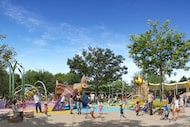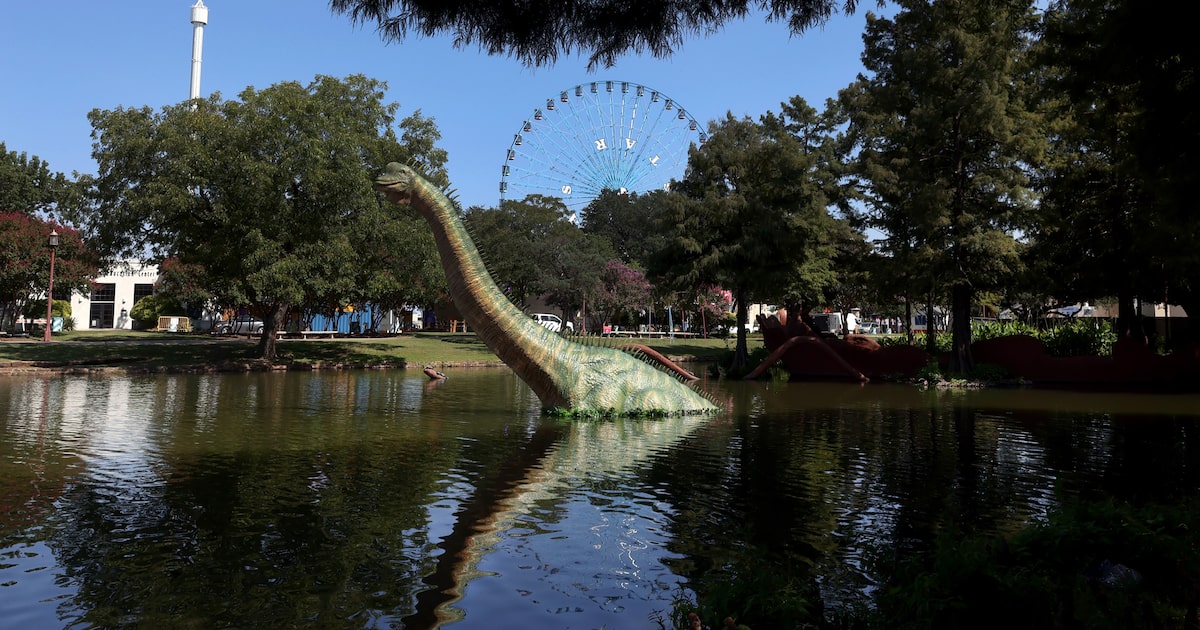Dallas wants to revitalize Fair Park and increase its offerings after city staff took over the site’s management.
Fair Park has been under the city’s control following a tense split earlier this year with venue management company Oak View Group and nonprofit Fair Park First. The city now has to decide what to do with the park after the separation, which occurred after nearly $6 million in misspent donor funds were revealed.
John Jenkins, the park department director, said at a park board meeting Thursday there’s an urgency to start executing plans for Fair Park, which could see event opportunities, but also has seen millions in maintenance needs. He added that it’s important the surrounding community is included in Fair Park’s revitalization.
“There’s been too many promises broken,” Jenkins said. “There’s been too many startups not delivered.”
Breaking News
The fate of a planned, $39 million community park expected on the fairgrounds remained unclear Thursday as city staff briefed the park board on the next steps.
The city plans to retain control of the overall operations, but private companies could be tapped for things like sales, security, food and other aspects, said Ryan O’Connor, deputy director of the park department. Fair Park is working to secure short-term agreements. There isn’t time to wait for a structure to emerge organically, he told board members.
“We really need to implement change now so that the park can be a thriving community asset and economic asset to the city,” O’Connor said.
Related

Jenkins, the park department director, noted the presentation was “very high-level,” meant to provide vision similar to previous plans for Fair Park. It was important, he said, to get started attracting events and operating while the city figures out the final structure for governance over the park.
Jenkins also said the public deserves a revenue-generating Fair Park, with events like festivals or concerts. He pointed to the past several years, during which the park was managed privately, as a reason for the urgency in getting the park up and running.
“What has failed is the governance, the execution and failure to maintain Fair Park,” Jenkins said.
The city owns Fair Park but handed over management and operations of the venue to Fair Park First and OVG360, Oak View Group’s hospitality division.
The nonprofit and the OVG360, which also handles operations at the Kay Bailey Hutchison Convention Center, were put under a microscope after a report revealed the amount of restricted donor funds spent on park operations.
Several vendors are yet to receive payments for their services. Jenkins has also accused OVG of not making basic repairs at buildings such as the Texas Discovery Gardens and Music Hall.
Under these circumstances, the city decided to end its contract with Fair Park First and OVG in June. Since then, a transition team has been cobbled together to take over operations at Fair Park.
At the meeting Thursday, staff highlighted Fair Park’s value, striking comparisons or gaining inspiration from places like the Rose Bowl in California or Chapultepec Park in Mexico.
O’Connor told board members that more than 4 million people visit the fairgrounds every year. The Cotton Bowl at the grounds is newly renovated. He added that it’s home to several successful partners like the African American Museum, Broadway Dallas and, of course, the State Fair of Texas.
Among the recommendations, O’Connor said it was important to have regularly occurring programs that would create small business opportunities. Areas like the Leonhardt Lagoon could be used for recurring events like movie nights or concert series.
Part of the strategy involves partnering with nonprofits, which bring in philanthropy. It would mean creating a new Cotton Bowl Foundation, along with developing or partnering with a nonprofit to focus on the park’s arts and cultural assets, venues and agricultural facilities.
Fair Park First’s future with the city remains unclear. While the organization has raised more than $30 million for the community park, it no longer has a contract with the city.
To move forward, the nonprofit would need a new agreement to build the park. It’s not clear when that agreement might be considered and, as time goes on, the cost of the project is only expected to grow.
While some board members have said the community didn’t deserve another delay on the community space, others wanted to wait to receive a completed audit of how money was spent at Fair Park and gain insight on legal vulnerabilities before making any decision around the community park.
At the meeting, staff were asked about the planned community park and whether it would remain in the same location as was planned on the fairgrounds.
Jenkins said it’s important to assess where the green space should go and what development could be supported by the community park.
“As we work through those details of the plan, we’ll be able to really determine how that park can support the overall plan at Fair Park,” Jenkins said.
This reporting is part of the Future of North Texas, a community-funded journalism initiative supported by the Commit Partnership, Communities Foundation of Texas, The Dallas Foundation, the Dallas Mavericks, the Dallas Regional Chamber, Deedie Rose, Lisa and Charles Siegel, the McCune-Losinger Family Fund, The Meadows Foundation, the Perot Foundation, the United Way of Metropolitan Dallas and the University of Texas at Dallas. The News retains full editorial control of this coverage.
